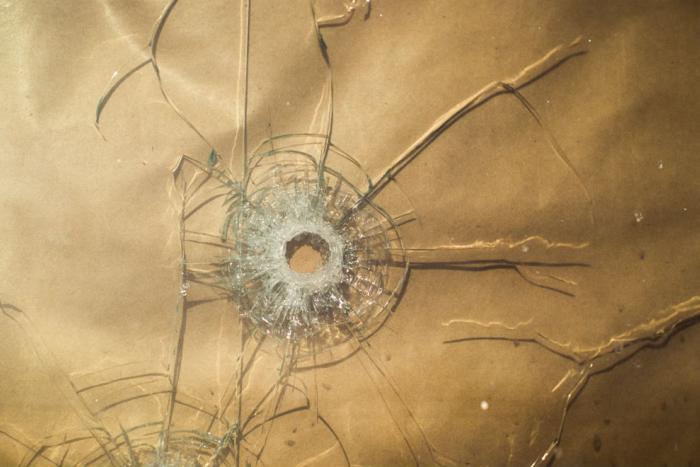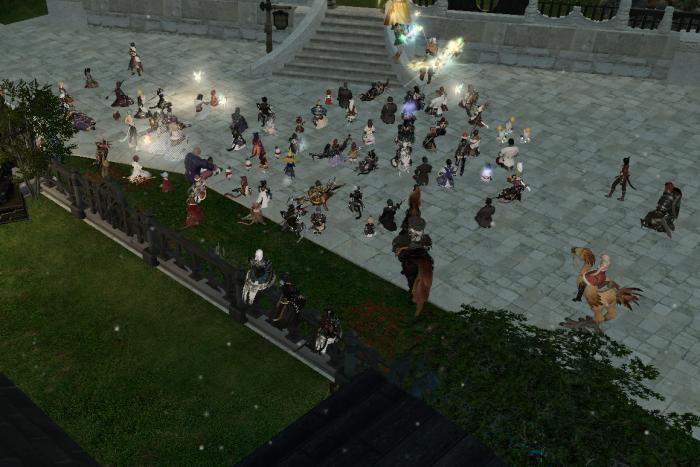
Mouthful is a column about the author’s relationship with food, ten years into recovery from anorexia and bulimia.
I was in Florida piecing my life back together after an eating disorder ripped it apart when I began assisting in a classroom of second- through fourth-graders with emotional and behavioral disabilities. The work demanded a kind of patience I thought I had before beginning, but never could have anticipated requiring. Students overturned desks, cried so hard they made themselves vomit, fought with each other, intentionally interrupted the class lessons, ran away from school and home, and routinely came to school without their backpacks or their glasses. Many of them endured horrible abuse and neglect. Some of them would go on to have children and mile-long rap sheets before they turned twenty. Fifty percent of students at the school were legally homeless.
Still, there were pleasures. My favorite memories from this time take place in the garden. We planted it the second year I was there, at the side of the school near the playground and the bike racks. The children grew sunflowers, greens, and carrots. The classroom teacher, “Ms. V,” was an avid environmentalist, and in addition to the garden, she had instituted an elaborate paper-recycling program, which raised thousands of much-needed dollars.
Ms. V carried her lunch in canvas sacks and her loose-leaf tea in recycled jars; I never saw her use a plastic bag or a paper cup. Her lunches were made from vegetables she grew in her own garden at home, in which everything was done organically and sustainably—she even watered her beds from a bright blue rain barrel. She had an aeroponic herb planter in her kitchen. She made a compost tumbler out of an old washing machine.
I was already vegan before meeting Ms. V—I had been so for a year and a half, including the two months I’d spent in rehab, learning how to eat again. I’d gone vegan allegedly for political reasons, though the true underlying reason was that the person I had been dating for a year before going to rehab was politically vegan, and had pressured me into adopting the lifestyle. As it turned out, the restrictive diet dovetailed nicely with my anorexia.
I liked having a system of belief to which to subscribe. My ex-boyfriend was a proponent of anarchist “rewilding” and read deeply from works by John Zerzan and Derrick Jensen, though at times his militarism became frightening—for instance, he idolized Ted Kaczinsky. He had a fantasy, which I took seriously, of setting fire to a logging operation or a vivisection laboratory—of course, after freeing the animals. For a time, I shared this fantasy.
Aside from his immersion in green anarchist theory, though, my ex did not live an environmentally friendly lifestyle—or any kind of friendly lifestyle. He drove a car, seldom recycled, smoked cigarettes and dropped his butts on the ground, drank a lot (a lot) of beer, picked fights with people for fun, and bought clothing made in sweatshops. In retrospect, his stated beliefs were more than likely an outlet for his anger.
Even so, when I began working with Ms. V, I still held onto some aspects of green anarchist philosophy. I distrusted capitalism. I witnessed with dismay our pillaging of the natural environment. I maintained a desire to live off the grid, though I wasn’t sure how to go about this. In my imagination, living off the grid looked like a shack in the woods, possibly near a river, where possibly I would fish each day—wild-caught animals aligned with my veganism, because they had lived full lives before being killed. I disagreed with the oppression and exploitation of living organisms; if they had lived wild, they were neither oppressed nor exploited
Where my ex was all theory, Ms. V was all action. He antagonized; she galvanized. We were collectively distilled with an appreciation for the living world. Children who normally struggled to pay attention in class sat for minutes at a time observing bees. Some who worried daily about where they would sleep each night found solace in tending seedlings. They saved their apple cores and orange peels to add to our compost pile. They saved discarded paper products at home and brought them to school, to contribute to the recycling program.
In the afternoons, I biked around my neighborhood collecting citrus and starfruit from people’s yards—this was technically illegal, but I considered it urban foraging. Trees were a public resource.
Because St. Petersburg didn’t have curbside pickup, I sorted my glass, plastic, and cardboard, and brought them down to the recycling center each weekend. If it was yellow, I let it mellow; if it was brown, I flushed it down.
For the first time in my life, I kept houseplants alive. I made an admittedly disgusting attempt at composting in a lopped-off milk jug, to the dismay of my new and very understanding boyfriend, who would also eventually go vegan. Had my composting worked, my attempt to grow lima beans in the dusty planter outside our apartment may also have worked. My ability to grow anything then was still nascent.
*
Ten years later, I live alone in a studio apartment in Brooklyn. I teach two classes at two universities, both of them located ninety minutes to two hours from where I live. My students are adults. I am trying to finish a novel. I’m no longer vegan—I abandoned and returned to it, then abandoned it again, and have been consuming animal products now for two years. Sometimes I think about this and feel guilty, but quickly forget about it again—food is the last thing I think about day-to-day. For that reason, it is often the first thing I forget to plan for. My refrigerator sits mostly empty. I sometimes fall asleep hungry. I frequently order delivery. Sometimes, I eat whatever is closest at hand. The other day, this was several sheets of old, dried sushi seaweed from the cabinet.
The supermarket is two blocks from my apartment. I could go there. But I usually don’t. It’s winter and cold, and windy, and wet. I carry my groceries home in bags. I feel sluggish from vitamin D deficiency. When I moved here in 2010, I was told by a doctor that all New York residents are deficient from lack of sunlight. This is true year-round.
I work from home. I will stay inside all day, in my underwear, on my sofa. I’m writing, or trying to write but instead reading the news with increasing panic. The longest I have gone without leaving my apartment is four days.
Today, I was proud of myself: On the walk home from my girlfriend’s apartment, I went a block out of my way to the grocery store. When I got home, I ate blue cheese directly out of the box with a fork. I ate three handfuls of raw arugula. Then I combined the two in a bowl and drizzled it with olive oil and balsamic vinegar, and praised myself for making a healthy choice. Then I ate the rest of a bag of chocolate-covered raisins I bought two weeks ago, on my way home from a literary event.
I routinely eat in transit. I know which takeout Indian restaurants will be open when I return to my neighborhood at midnight. I hit up the Shake Shack when my class lets out at four in the afternoon, before I get on the train. I look for the least sugary snack at 7-Eleven, to tide me over until I find a meal—then I settle for a bag of jalapeño Kettle chips and a cup of coffee prepared with four half-and-halfs. I save the last of my late-night Gyro Café to eat for lunch tomorrow. I fry it up with whatever is around. An old onion. Some Cholula.
I eat like a scavenger. Perhaps I’m lazy. Perhaps it’s a matter of survival. But I’m tired of surviving, and crave stability. I share this neighborhood with many Latino and South Asian families. In the spring, gardens appear in their courtyards, lengths of string hung from brownstones above the concrete, tied to the spiky gates that line the sidewalk. Tendrils of squash and cucumber grow up from the tiny patches of soil and curl around the loose weave, suspending their leaves and flowers. They are fresh, alive, tended to, appreciated, harvested, served to nourish.
When my ex-husband and I lived in this apartment together, before he moved out last January, our superintendent would plant her garden in the yard outside our window. She and her husband, both elderly people now, moved to the United States from Albania over forty years ago. They had always lived in this building. Theirs was the apartment next to ours on the ground floor. On Sundays, their music filled the hallway through their propped-open door. In the garden, our super grew peppers and cucumbers, tomatoes and squash, sunflowers and corn and foxgloves. As she harvested, she passed us vegetables and flowers through our window.
The garden is closed now. The Albanian couple moved out and now a new superintendent lives next door. His first order of business was wiring shut the gate to the garden, to keep out neighborhood children. It is now only an unused patch of uncut grass. It would be perfect for playing tag, or taking a nap in the sun, or planting tomatoes. A section of grass is useful to the human soul in many ways. Before my super wired it shut, I had considered asking if I could plant my own garden there. Instead, I grow one inside.
All but one of the plants in my apartment began as a clipping. Two were given to me by friends. I rooted them in glasses of water, repotted them, and then clipped them when they grew large enough to repeat the process. Four out of five send out tendrils, looking for new places to latch on and put down roots. These are vulnerable organisms. There are many places where they could get hurt reaching so far into the world. They can’t see where they’re going. They can’t see the future. They have few natural defenses. They also regenerate.
What was once a tiny callisia fragrans clipping, just a few inches long, is now the largest plant in my apartment, occupying an entire window. It has given life to two others, which live on bookshelves and lean towards the nearest source of sunlight: the window facing the former garden. The next largest, a massive Peruvian grape ivy with dozens of tangling tendrils, occupies half of a windowsill above my bed. It is now my cat’s favorite perch, which tells me that he would very much enjoy sleeping in a garden.
The fifth is a zee zee plant, a cluster of shoots with glossy, teardrop-shaped leaves, which came into my possession when some friends moved out of the country. For months, my ex-husband and I failed to notice that the zee zee’s faulty potting was choking its roots and depriving it of water. An enormous plant when we adopted it, sections of it continued dying until, one day, in desperation, we took it into what was then the still-open grassy area outside my apartment, to repot it.
Half of its rhizomes were shriveled beyond saving. Most of the plant was dead below the surface. Gently, we cleared away the damaged tissue. We left only a couple of stalks to salvage. We placed them in a pot just a quarter of the size of the original. It took years for the plant to begin growing again, but it did. Today it is still less than half the size it was. But this week, a new shoot broke ground, and is already climbing above the others.
*
I find myself looking out over New York’s endless expanse of concrete, longing for a lifestyle similar to the one now enjoyed by my vegan ex-boyfriend’s ex-girlfriend. When I was deep in my anorexia, I used to stalk this person online. At the time, she was an alcoholic Chicago scenester, recently graduated from hair school, very much into her makeup and her Chihuahua. She was hot. I felt like a troll. I was lonely and isolated in my Long Island apartment, mousy and starving and crippled by insecurity, and obsessive-compulsively bingeing and purging, followed by long periods of starvation and sleeplessness. My ex would openly compare me to her, fueling my obsession and self-hatred. Her carefully crafted online persona looked glamorous compared to mine, which never achieved her level of effortlessness. Ironically, narcissism did not come naturally to me. I chewed on her Livejournal. I hated her and wanted to be her.
Now she lives in the mountains of North Carolina on a homesteaded farm. She’s grown her hair long and has let it resume its natural blonde. She keeps chickens and goats, and grows bright-colored fruits and vegetables in her organic garden, and hikes down to a creek with her two children, who swim in fresh mountain water.
I miss the water. I live on an island but it’s easy to forget this when all I see are piles of trash, and cars, and when I am so often underground, and the only birds above ground are pigeons, and sad little starlings, and ratty gulls. It’s not easy to go to the beach here. I’ve gone twice in eight years. The water was cold; the sand was packed; it was not St. Petersburg sugar sand; it was filled with discarded wrappers and tampons, and backed up to an abandoned building. I miss the smell of sunscreen and surf wax. I miss sunshine. I miss being salty and sun-drunk.
In my years since returning to New York City, I’ve thought deeply about the ways trauma has estranged me from myself. The difficulty of this has been that events cast ever-expanding ripples across the liquid of time—or maybe that the effects root out like a rhizome, one leading to several others. Or maybe just that we don’t always know—we rarely know—what we are learning in media res—how a particular experience will lead us to think this, or do that, or deprive us of nourishment, or cause us to blame ourselves for our pain and exact punishment. I did not always know when I couldn’t feel my body. This is inaccurate: I could feel my body, but was disconnected from the true source of its pain. I only knew at times that I didn’t want to feel anymore. I could feel too acutely, and I didn’t want to feel at all. I was not always aware of the underlying reasons for my pain, or for my choice to feel one kind of pain instead of another.
Growth has meant restoring my relationship with my bodily experience. I feel in my body that the toxicity of New York City is damaging to me. I mean this biologically: the soil is tainted. A cursory read of the Department of Health website tells me that I am at risk if I plant a garden in my neighborhood, given that I live near painted structures, gas stations, auto body and repair shops, dry cleaners, busy roadways, elevated rail lines, and other manufacturing or industrial facilities. There is nonstop noise and light. As soon as I dust my apartment, new city grit resettles, so I always feel dirty. I always feel tired. I am always pressing up against other bodies. I am always checking my bank account. It is gray again today. I need sun.
Sometimes I think it’s unwise to project into the future. I may set myself up for disappointment if I expect too much from forces I can’t control. But sometimes I think projecting into the future is the natural response to seeing a current situation for what it is.
I have built a life for myself in New York. I’ve finished graduate school, published two books, gotten married and divorced, lived alone for the first time in my life. I’m now in love with a woman. I adopted a cat from the street. I am keeping several plants alive. I’ve lived in closets converted into bedrooms and storage rooms converted into apartments. When I moved back here in 2010, after learning to eat for three years, all I wanted next was to learn how to write. I have learned so much more. I want to keep learning. I want space to grow.
I want to plant a garden. I want to build a coop for two chickens. I want to walk twenty steps to the ocean and send out a lure and sit on the sand and wait. Liberate citrus into my bicycle basket on sun-slanting afternoons, then fall asleep on the grass in the swelter of summer and wake up burning. I’ll water my carrots from a rain barrel affixed to my roof. I’ll shovel compost. I’ll watch my girlfriend raise a colony of bees. Watch her bees pollinate my squash blossoms. Listen to their hum because, in Florida, it is quiet enough to hear the hum of bees. We will have time to listen. We’ll have time to harvest honey. We’ll have time.
Collage by Sarah Gerard.





